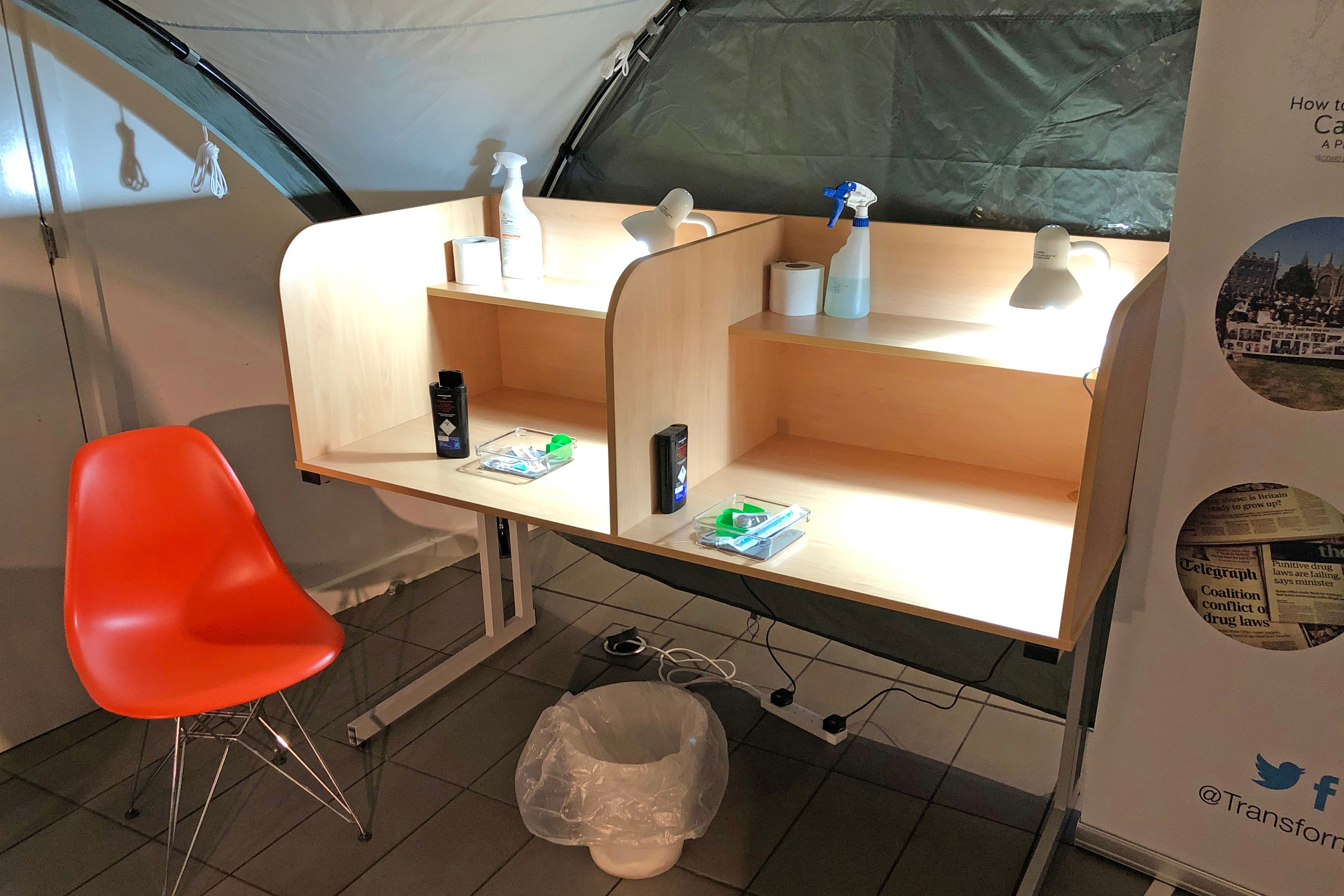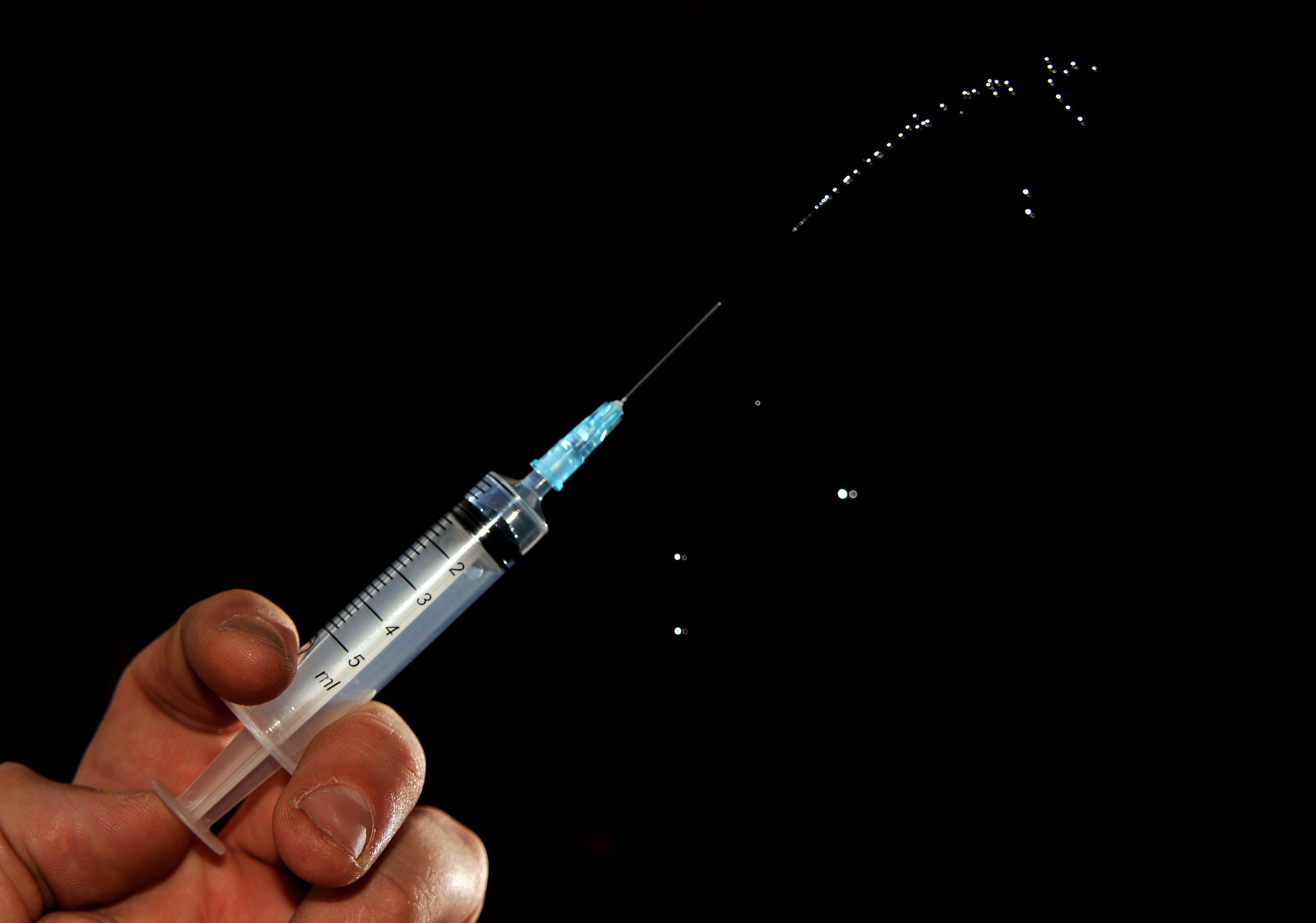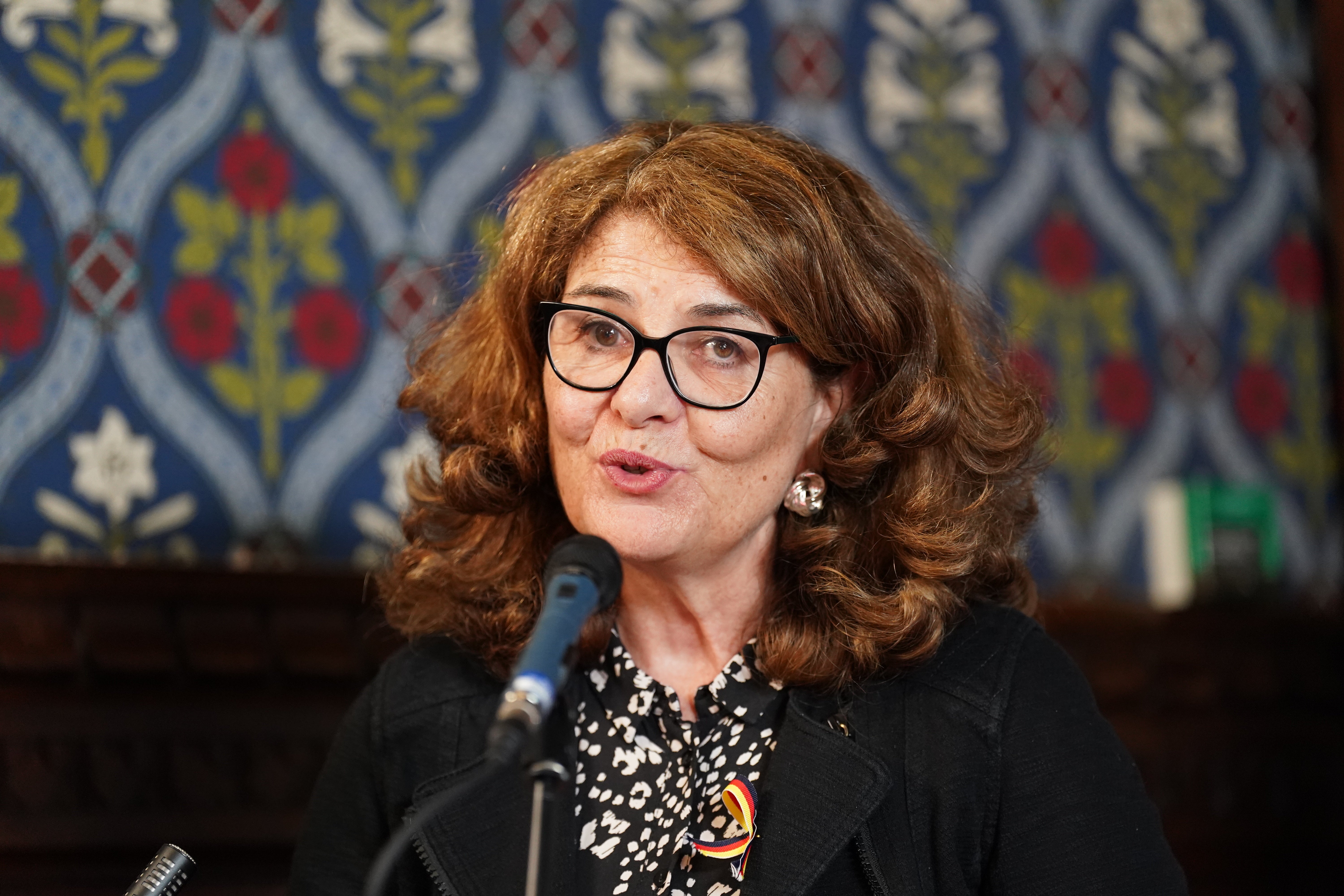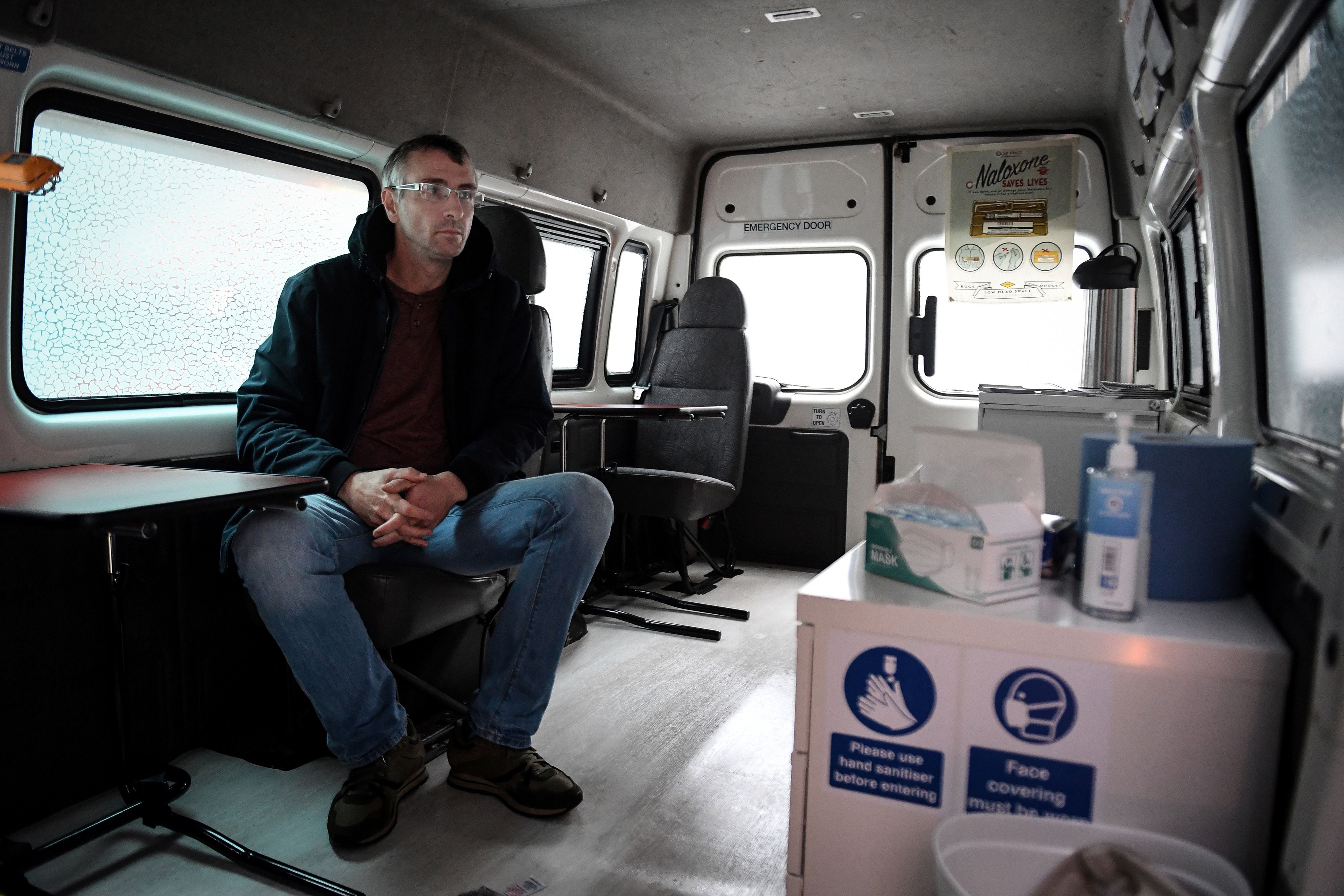Government hints drug injection rooms could be considered in wake of Glasgow pilot scheme
Experts welcome sign of possible tide change in wake of Tory rule – but urge immediate action to save lives

Your support helps us to tell the story
From reproductive rights to climate change to Big Tech, The Independent is on the ground when the story is developing. Whether it's investigating the financials of Elon Musk's pro-Trump PAC or producing our latest documentary, 'The A Word', which shines a light on the American women fighting for reproductive rights, we know how important it is to parse out the facts from the messaging.
At such a critical moment in US history, we need reporters on the ground. Your donation allows us to keep sending journalists to speak to both sides of the story.
The Independent is trusted by Americans across the entire political spectrum. And unlike many other quality news outlets, we choose not to lock Americans out of our reporting and analysis with paywalls. We believe quality journalism should be available to everyone, paid for by those who can afford it.
Your support makes all the difference.Sir Keir Starmer’s government has signalled a potential openness to setting up overdose prevention facilities after years of Tory opposition, Scotland’s first official centre is set to open in Glasgow.
As grim data showed drug deaths in Scotland rose 12 per cent to hit 1,172 last year, councillor Alan Casey confimed that the long-awaited £2.3m drug consumption centre would open on 21 October in Glasgow’s East End, warning that “the urgent need for such a facility couldn’t be more important”.
In the first indication of Labour’s approach since coming into power in July, Home Office minister Dame Diana Johnson has now said her department “will consider any evidence emerging” from evaluation of the Glasgow drug consumption room pilot “in due course”.

The centre will be open 365 days of the year between 9am and 9pm to provide a safe and hygienic space for up to 30 people to inject illicit drugs such as heroin under the supervision of health professionals armed with the overdose-reversal drug naloxone.
Such facilities are already used in 17 countries worldwide, including the US, Canada, France and Australia, and have in some cases saved thousands of lives, while also reducing street injecting and bringing drug users into contact with vital support services.
But despite drug deaths rising for 11 consecutive years in England and Wales to reach a record of nearly 5,000 fatalities in 2022, growing calls for facilities south of the Scottish border were repeatedly rejected by the previous UK government.
With the emergence of new and lethal synthetic opioids now intensifying the crisis, experts are pleading with ministers to take more radical steps to save lives.

Dame Diana’s statement, in response to a parliamentary question by Labour MP Rachael Maskell, is in notable contrast to her Tory predecessor Chris Philp’s response to the same question in May.
Asked what assessment Rishi Sunak’s government had made of the potential benefits of overdose prevention centres, Mr Philp said it did not support such facilities, citing concerns that they condone drug use and encourage their supply.
Experts had criticised Mr Philp’s response as “inexcusable and verging on negligent not to be reconsidering this proven intervention that’s saving lives across the world” in light of the UK’s existing drug deaths crisis and the threat of new synthetic opioids.
While welcoming the new government’s change of tone, the charity Release urged ministers not to wait months for the Glasgow pilot to begin before expanding the “desperately needed” service to other parts of the UK, urging the Home Office “to act now to save lives”.
Under Dame Diana’s leadership, MPs on the crossparty home affairs committee recommended piloting such facilities only last year, in addition to scaling up drugs-checking services and centrally funding heroin-assisted treatment services.
“The minster should follow her own sensible recommendations immediately to prevent a catastrophic public health situation from unfolding,” said Release chief executive Niamh Eastwood.
Noting that a vast body of peer-reviewed research spanning 25 years already exists, Martin Powell of Transform Drugs Policy Foundation urged ministers to approve immediately any area that wants a centre.

“It would be pure discrimination to say poor and marginalised people who use drugs must keep dying unnecessarily when the government would never demand decades of research behind equivalent proven health interventions for other groups of people be repeated in the UK before believing it,” he said.
An unsanctioned and unfunded overdose prevention service operated out of a repurposed ambulance by activist Peter Krykant in Glagow in 2020 – which served to pave the way for the city’s new facility – oversaw nearly 900 injections, successfully intervening in all nine overdoses at the facility, a study found.
With the emergence of lethal synthetic opioids in recent months now further imperilling drug users, The Independent understands that several councils in England and Wales have also approached experts for advice on how to set up overdose prevention facilities.
Kaleidoscope, a drug treatment charity on the frontline of the crisis in Wales is pushing to pilot – and, if necessary, fund – its own facilities in the coming months.
A government spokesperson said: “Every death from the misuse of drugs is a tragedy for those who have lost their lives, their families and for their wider communities.
“While we have no plans currently to change the UK drug laws, through our mission driven government, we will take preventative public health measures to tackle the biggest killers in society – including drug misuse – and better support people live longer, healthier lives.”
Join our commenting forum
Join thought-provoking conversations, follow other Independent readers and see their replies
Comments